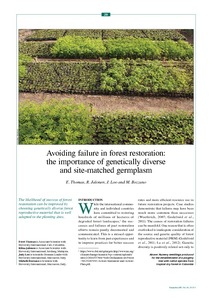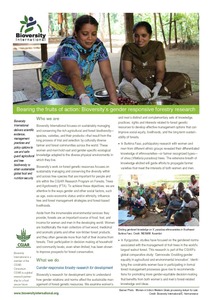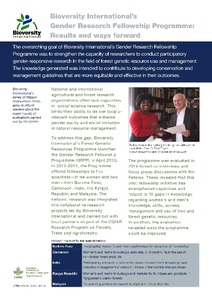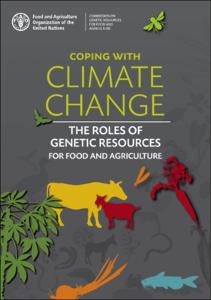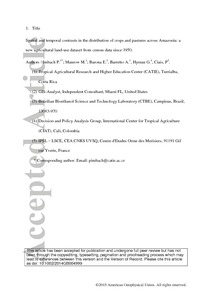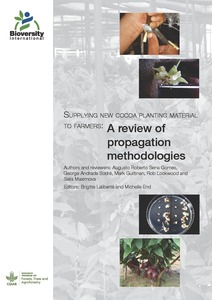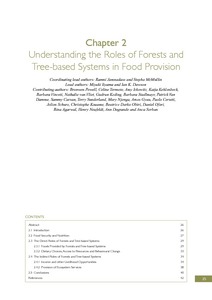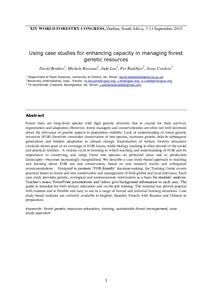Bearing the fruits of action: Bioversity’s gender responsive forestry research
Bioversity International’s Gender Research Fellowship Programme: results and ways forward
Designing for value: Structuring voluntary certification programs to increase stakeholder acceptance
Voluntary certification programs are one type of intervention used to incentivize the commodity agricultural sector in tropical forest landscapes to reduce deforestation and improve sustainability. These programs encourage supply-chain actors to produce and source products according to agreed standards. We review the cases of the Roundtable on Sustainable Palm Oil (RSPO) voluntary certification program in Indonesia, and the Sustainable Agriculture Network (SAN) voluntary certification program for cattle in Brazil.
Introduction: contributions and gaps in gender and agroforestry
Nutrients and bioactive compounds content of Baillonella toxisperma, Trichoscypha abut and Pentaclethra macrophylla from Cameroon
Baillonella toxisperma, Pentaclethra macrophylla and Trichoscypha abut are important foods for communities living around forests in Cameroon. Information on the nutritional value and bioactive content of these foods is required to establish their contribution to the nutrition and health of the communities. Samples of the three foods were obtained from four villages in east and three villages in south Cameroon. The foods were analyzed for proximate composition, minerals and bioactive content using standard chemical analysis methods. T.
Spatial and temporal contrasts in the distribution of crops and pastures across Amazonia: a new agricultural land-use dataset from census data since 1950
Supplying new cocoa planting material to farmers: a review of propagation methodologies
The review, coordinated by Bioversity International, presents an impartial, evidence-based review of cacao propagation methods, to serve as a basis for the assessment and implementation of strategies for providing farmers with quality planting materials, adapted to current and future needs (cultural, institutional, technical, environmental and financial). It describes the various propagation methods available for the production and supply of large numbers of cacao plants to growers.
Understanding the roles of forests and tree-based systems in food provision
Forests and other tree-based systems such as agroforestry contribute to food and nutritional security in myriad ways. Directly, trees provide a variety of healthy foods including fruits, leafy vegetables, nuts, seeds and edible oils that can diversify diets and address seasonal food and nutritional gaps. Forests are also sources of a wider range of edible plants and fungi, as well as bushmeat, fish and insects.
Using case studies for enhancing capacity in managing forest genetic resources
Forest trees are long-lived species with high genetic diversity that is crucial for their survival,
regeneration and adaptation. However, forest managers and conservationists are often not well informed

